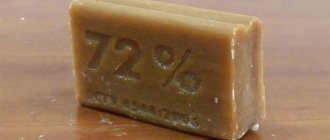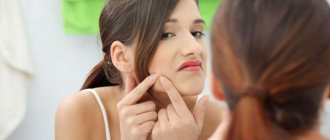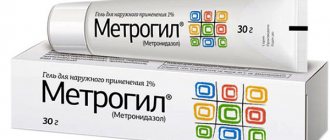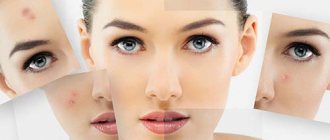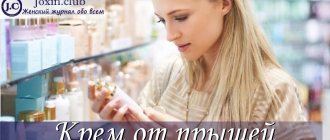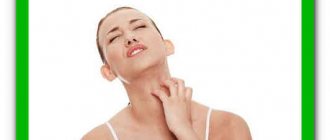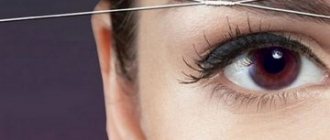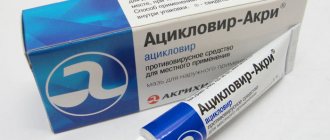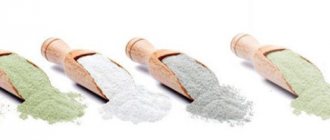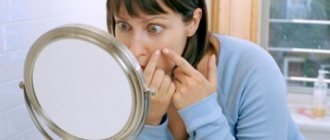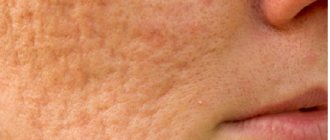People who are susceptible to skin diseases very often go to great lengths to get rid of problem skin once and for all. Sometimes, once again using some remedy in the hope of recovery, they aggravate the problem. And the consequences, it turns out, are much more difficult to treat than the problem itself.
The myth that laundry soap helps against acne has been passed down from generation to generation. They say it is the purest and most proven product that our mothers and grandmothers used. And now they are alive and well, and they have no acne. It is worth noting that when our grandmothers were young, no one had heard of any foams or gels for washing - they simply did not exist yet. Is it worth mentioning the development of cosmetology as a science at that time? So it's not surprising that people tried everything they could. And the so-called improvement during the use of laundry soap can be explained by the remission of the ongoing disease, which occurred precisely at this moment.
The fact is that acne, especially in adolescence, is associated with the hormonal background of adolescents. And so, when hormones return to normal, this affects the condition of the skin. 80% experience improvement - the so-called spontaneous remission, and sometimes even self-healing.
Useful properties of laundry soap
Modern youth often do not take the risk of using this remedy for acne on the face, choosing expensive advertised drugs, or simply do not know how to use this particular soap.
If we consider the reviews of many people, we can say that the main preference is not for laundry soap, but for using tar or glycerin soap for acne. Each type has a strong effect on human skin, and also has its own side effects if used incorrectly. What soap helps with acne? You should study the beneficial properties of laundry soap to ensure its effectiveness.
This product has more advantages than disadvantages:
- No smell. If the product is of good quality and made from natural ingredients, it should not have a strong unpleasant odor.
- Low cost. Of all the means to combat problematic dermis, laundry soap is one of the cheapest. Especially when compared with expensive gels and scrubs.
- No chemistry. A high-quality product does not contain a large amount of harmful substances in its composition.
- Antiseptic effect.
- Healing effect.
- Anti-inflammatory effect.
- Copes with swelling.
- Antibacterial property.
- Cleansing action.
- Calming effect.
Due to these beneficial properties, laundry soap has several different applications.
Compound
Laundry soap is available in both solid and liquid forms. The composition of both varieties is almost identical. The main component of the detergent is the residues of saturated and polyunsaturated organic fatty acids, their content is indicated in numbers, 72% or 64. Due to these residues, it washes well even in cold water. Additionally, the composition includes sodium salts (for solid soap) or potassium salts (for liquid form).
Laundry soap is only the basis. Various flavors, dyes, essential oils and synthetic components are added to it, which prevent the resulting product from quickly deteriorating. By adding any of the above ingredients, an aromatic soap is obtained.
Areas of use
| Cosmetology | In this area it is used as a cleanser for the dermis of the face and head. Eliminates dandruff, restores hair structure. Soothes the protective covering after removing unwanted hair - shaving or epilation. Also, with the help of the product, they get rid of skin problems such as pimples, acne and other inflammations. |
| ethnoscience | In this application, laundry soap comes in handy for healing minor skin injuries such as small cuts, scrapes, cracked dry skin and stretch marks. Providing anti-inflammatory and decongestant effects, the drug copes well with insect and small animal bites. It is also used to treat more serious diseases. |
| Household | It has long been used by housewives to remove stains and remove heavy dirt from a variety of work surfaces, furniture and clothing. Additionally, it is used to cleanse the entire apartment or house of germs. The product copes well with gardening problems such as aphids and spider mites. |
So which one is better?
First, let's determine what is included in the product. The ingredients here are quite simple: sodium or potassium salt plus fatty acids. That's all. Because when we add various dyes and fragrances, we get toilet soap.
According to standards, soap comes in three types: 65%, 70%, 72%. Percentages indicate the ratio of fat to the total mass of the product. Directly on the bar itself there is a large imprint indicating the number, so it is almost impossible to make a mistake in choosing the right soap.
There are two methods of soap making
With the first method of cooking products, which is called direct, 65% soap is obtained. To do this, all components are mixed until a viscous substance is obtained, and then the cooled product is cut into bars. In this case, the product will be of sufficient quality, but its fat content will be low.
The second method is called indirect. The adhesive substance is treated with a saline solution, resulting in the appearance of a soap core and a lower layer - soap lye. Then the product will have 72%.
Thus, we conclude that for cosmetic purposes it is more advisable to use a product with a large amount of fatty acids, because they are good at eliminating bacteria and microbes. This is 72% soap.
When choosing a bar, pay attention to its density. A fairly hard and uniform piece will foam better.
Harm and contraindications
Like any other product, laundry soap has harmful properties in addition to beneficial ones:
- It should not be used to cleanse the dermis every day, as this will lead to dryness.
- Possessing high antibacterial properties, when used daily, this folk remedy removes the natural barrier from human skin that protects it from bacteria. As a result, local immunity decreases.
- Carefully read the ingredients indicated on the packaging. The more modern manufacturers add chemicals to a product, the less benefit and more harm it will cause.
- Not recommended for use on dry and sensitive epidermis. Due to its strong drying effect, the use of the product may worsen the situation.
- When washing your face, use only soap foam. After this procedure, use a moisturizer to prevent dry skin.
Advantages and disadvantages of laundry soap
The product in question has several positive qualities:
- Completely natural.
- Kills bacteria using an alkaline environment.
- Washing away excess sebum, dust and harmful substances.
- Antibacterial treatment of the site of inflammation and restoration of the affected skin area.
- Preventing bacterial growth and recurrence of acne.
- Minimum cost of funds.
Disadvantages of using soap
Despite many advantages, the product also has some disadvantages:
- Skin dehydration due to frequent use of laundry soap. This is explained by the fact that the skin’s protection is also removed along with the sebum.
- Using soap does not always eliminate the true cause of acne, which may lie deep in the human body.
So, for soap to really help you fight acne, you need to use it correctly and remember to moisturize your skin in a timely manner.
Types and differences
Also, in addition to the chemical composition, it is worth knowing the variety of types of products in order to determine exactly what you need. Modern manufacturers produce it in the following forms:
- lump;
- liquid;
- powdery;
- gel-like.
Laundry soap contains fatty acids. It also differs in their content in the product. The bar product usually has a pressed inscription indicating the percentage of acids in the soap: 65%, 70% and 72%.
Operating principle
The alkaline environment rids the face of dirt, dust and germs. Prevents the spread of infection and the proliferation of bacteria, which are located in the upper layer of the epidermis and provoke the appearance of acne and its spread to areas of the face not affected by the rash. The mild peeling effect that soap has due to the fatty acids it contains helps get rid of marks such as scars, scars, pigmentation.
Getting on the surface of the face, alkali breaks down fat plugs that clog the sebaceous glands, provoking an inflammatory process. This allows you to relieve the inflammatory process, resuming their normal functioning.
Application
Washing
The simplest and easiest way to use laundry soap for acne, which has a fairly strong effect, is to wash your face.
Users are often concerned about whether it is possible to wash their face with soap. Washing with this drug creates an unfavorable environment for the development and life of bacteria, so the answer is yes. This procedure should not be performed only by people with dry and combination skin types. Those with oily dermis should also use anti-acne soap carefully.
You should wash your face with soap foam no more than once or twice a week, in order to avoid consequences such as itching and severe dry skin. Also, after use, you should apply a moisturizer to the treated skin.
For those skin types for which it is not advisable to wash your face with this product, you can use it spot-on, applying it to problem areas. This method of application will help dry out pimples and prevent the possibility of new acne and blackheads.
Masks
An equally effective remedy that you can make with your own hands is a variety of masks containing laundry soap for acne on the face. There are several recipes for how to get rid of acne using a mask.
Salt mask
Rub the laundry soap on a coarse grater. Beat until foamy. Add salt in a one to one ratio. Apply the prepared mixture to the skin. After half an hour, wash it off with warm water. Use this mask no more than once every two days. The course of application lasts a month.
Mask for oily skin
In addition to soap and water, this recipe requires onions, or rather onion juice. Just like in the first recipe, rub the bar and stir it in warm water. Leave the resulting mixture to sit for a few minutes. Then add one tablespoon of onion juice and beat until foamy. Apply a thick layer to skin. After a quarter of an hour, rinse with warm water. This mask has the effect of unclogging pores.
Peeling
This procedure will help get rid of blackheads:
- Before peeling, steam your skin.
- Prepare a cotton pad. You need to soap it and pour baking soda on top of the soap.
- Walk lightly over problem areas. You should not make any effort, as this may result in damage to the skin.
- Wash your face with warm water.
Tips for use
- People with dry skin types should not use the above methods more than once a week.
- People with other types of dermis besides dry skin should use laundry soap against acne no more than 3 times a week.
- After you have finished washing your face with laundry soap for acne, it is recommended to use moisturizing nourishing creams.
- If you use any of the products to combat acne on your body, you should not do this more than 3-4 times a week.
- Masks are quite effective, but their use has such a disadvantage as dehydration of the skin. It is not recommended to use them more than once a week.
Natural remedy
Laundry soap is an exclusively natural product. Its composition is quite simple:
- sodium salt;
- vegetable and animal fats.
During the soap-making process, fats are heated strongly and soda is added to them, resulting in the formation of soap glue, which thickens greatly after cooling.
Laundry soap can be applied directly to pimples and left overnight
The principle of action of soap is based on disinfection. The main property is that it easily disinfects and eliminates most of the bacteria that cause acne. Soap creates an alkaline environment on the surface of the skin (Ph level is 11 units), which is capable of eliminating excess fat and at the same time unsuitable for the existence of harmful organisms and bacteria.
Advice: if you have dry skin, you should use laundry soap with caution. After the procedure, you should moisturize your face. To do this, you can use natural oils, for example, peach oil.
Benefits of using laundry soap to combat acne:
- Availability. A large piece of laundry soap can be purchased at any store for about 20–30 rubles. It's cheaper than most cosmetics.
- Ease of use. In order to treat the skin, two washes a day are enough.
- A large number of different application options. In addition to washing, laundry soap can be used as a mask or scrub (if additional components are added).
- Natural composition. The product is made exclusively from natural ingredients.
- Bactericidal action. Thanks to its disinfecting properties, soap quickly and easily removes most bacteria and microorganisms.
- Prevention of acne. Daily washing will not only help you cope with existing problems, but also prevent new ones.
Tip: if acne is present not only on the face, then you can use laundry soap for the whole body. Replace your regular shower gel with it.
Disadvantages of using laundry soap for the skin of the body and face:
- Possible drying of the skin. An active alkaline environment can lead not only to dry skin, but also to peeling.
- Not a very pleasant smell and aesthetic appearance.
Is it possible to wash your face with laundry soap (video)
Does laundry soap help with acne?
Acne is only an external manifestation of a problem, be it a hormonal imbalance, eating junk food, or more serious health problems. In order to finally solve the problem of acne, it is not enough to use only this product. You should definitely contact a medical specialist who will determine the cause and give advice on how to eliminate it.
Laundry soap helps against acne with all its properties: it reduces inflammation and redness of the skin, and has an antibacterial effect. Like any other product, acne soap should be used following the instructions for its use.
Most often, a medical professional can prescribe some medications for you. If these are medications for oral administration, then using this type of folk remedy for acne is acceptable. If these are some kind of external preparations, then you should wait a while with cleansing the skin using this method. It is also worth consulting a dermatologist on this issue.
Precautions when using laundry soap
To avoid harm to the skin, precautions must be taken. Basic rules for using laundry soap against acne include:
- use the product no more than 2 times a week (1 time for dry skin);
- applying nourishing or moisturizing creams after procedures;
- use instead of shower gel every other day;
- selection of a high quality product;
- leather treatment exclusively with foam.
Laundry soap has properties that are important for eliminating pimples and acne. It is advisable to combine external use of the product with proper nutrition.
Reviews
Arina, 16 years old
For a long time I didn’t want to believe my grandmother and mother that laundry soap really helps against acne. After a lot of persuasion, I decided to try it, and after the first uses I saw the result - there was significantly less redness, small pimples disappeared.
Oksana, 24 years old
Having lived for a long time with such a nuisance as clogged pores, I accidentally came across advice on the Internet to try laundry soap for blackheads. Having tried a procedure called peeling, I quickly became convinced of the effectiveness of the advice.
Svetlana, 21 years old I liked the results of using masks. However, you should be more careful with their use, because they dry out the skin very much. But regular baby cream helps to cope with this.
